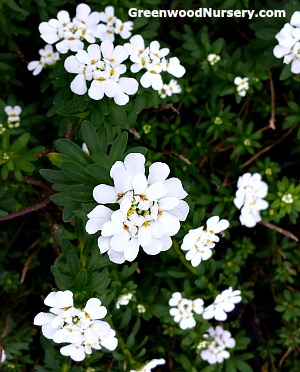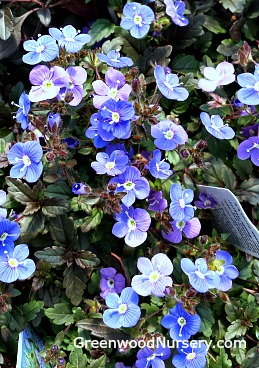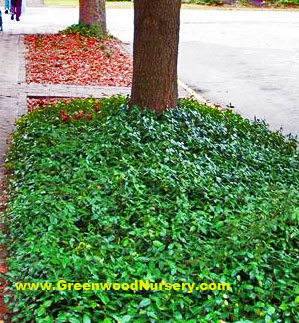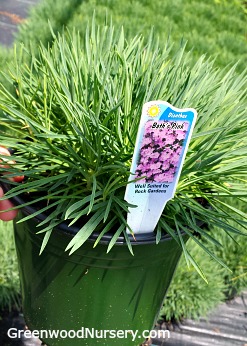Free gardening gloves when you spend $75.00 or more!

Planting on slopes and hillsides can be a challenge for any one. The trial and error of quickly planting some fast growing vines only to have them washed downhill with heavy rainfall the following week. Because your first efforts didn't pay off, you put off replanting and weeds begin to grow and grow. The area becomes a terrible version of itself complete with erosion.
But, there is good news! You can successfully plant on slopes and hillsides where they become an attractive part of the landscape. Selecting the right plants for the job, taking time to plant them properly, watering until they establish an extended root system and a little patience can produce a stunning sloped landscape.
Many different plants will perform beautifully on hillsides. Select plants and combinations that are an extension of your landscape and gardens. Low growing ground hugging plants work nicely with taller woody perennials, ornamental grasses, and low growing shrubs.
For a basic look that will solve erosion issues, use one variety of ground cover and buy in bulk to save money. Creeping ground covers are easy to plant and quick to establish. Best not to mix vigorous plants that will compete with each other. For example, vinca and wintercreeper would not be good companion plants. They grow about the same rate and will attain the same height range. They would create such an argument between themselves.
Before planting your new plants, plan for water runoff from heavy rains. A couple of low areas or ditches pointed downhill to divert rainwater will go a long way in protecting your new plantings. Space your new plants according to recommendations on their spreading habits. Dig the holes a little deeper into the hillside to add a handful or two of aged compost or aged manure mix to give the plants a good start. Watering is especially important for these areas as usually rain immediately runs off and doesn't get soaked into the ground. Drip irrigation and isolating sprinklers (the kind that attaches to the end of a hose) work best to direct water to the area over long periods of time to get soaked in.
With low growing, creeping ground covers, their sparce root systems will be planted in shallow holes. Until they establish into the soil, these plants are venerable and should be protected from heavy rainfall. This can be done by covering them with netting or a light layer of straw (not hay). The straw also provides shade and keeps the soil from drying out until the plants are strong enough to stay on their own.
Below are 11 best plants for covering slopes and hillside areas and to create beauty and stabilty.
Hypericum Calycinum St. John's Wort
Hypericum can reach 1 to 2 feet in height. Bright yellow flowers appear in spring and early summer when planted in full sun. Deciduous.
Creeping Raspberry is a fast growing ground cover but not invasive. Coarse evergreen foliage. White flowers with tiny fruit. Low growing.

Evergreen foliage with white flower masses. Great for walkway edges and lawn subsitute.
Big Blue Liriope is good for difficult sites. Strong grower that looks like a small grass. Purple spike flowers. Evergreen.

Delosperma creates an evergreen mat. Succulent. Tolerant of drought and humidity. Full sun. Low grower.

Pachysandra is good for hillsides and slopes in part sun to full shade. Easy to grow. Dense evergreen foliage. Low, compact fast grower.

Fragrant creeping phlox with purple flowers in spring. Low growing. Deciduous.
Wintercreeper is a woody, broadleaf that spreads by rooting stems. Evergreen. Fast growing. 6 to 9 inches tall.

Georgia Blue Veronica is a low growing deer and rabbit tolerant ground cover. Great fall foliage. Evergreen. Full sun.

Vinca minor is an evergreen ground cover that spreads by rooted stems. Grows in sun & shade. Evergreen. Rapid coverage.

This dianthus has blue green and mat forming. Pink flowers in spring to summer. Heat and humidity tolerant. Evergreen.
For more ideas, visit our ground covers page. Plus consider making the area interesting with adding colorful perennials and ornamental grasses.
The Greenwood Nursery Staff is available by phone (931-668-3041) and email to answer your questions and make suggestions on planting on your slopes and hillsides.
- cheryl's blog
- Log in or register to post comments







